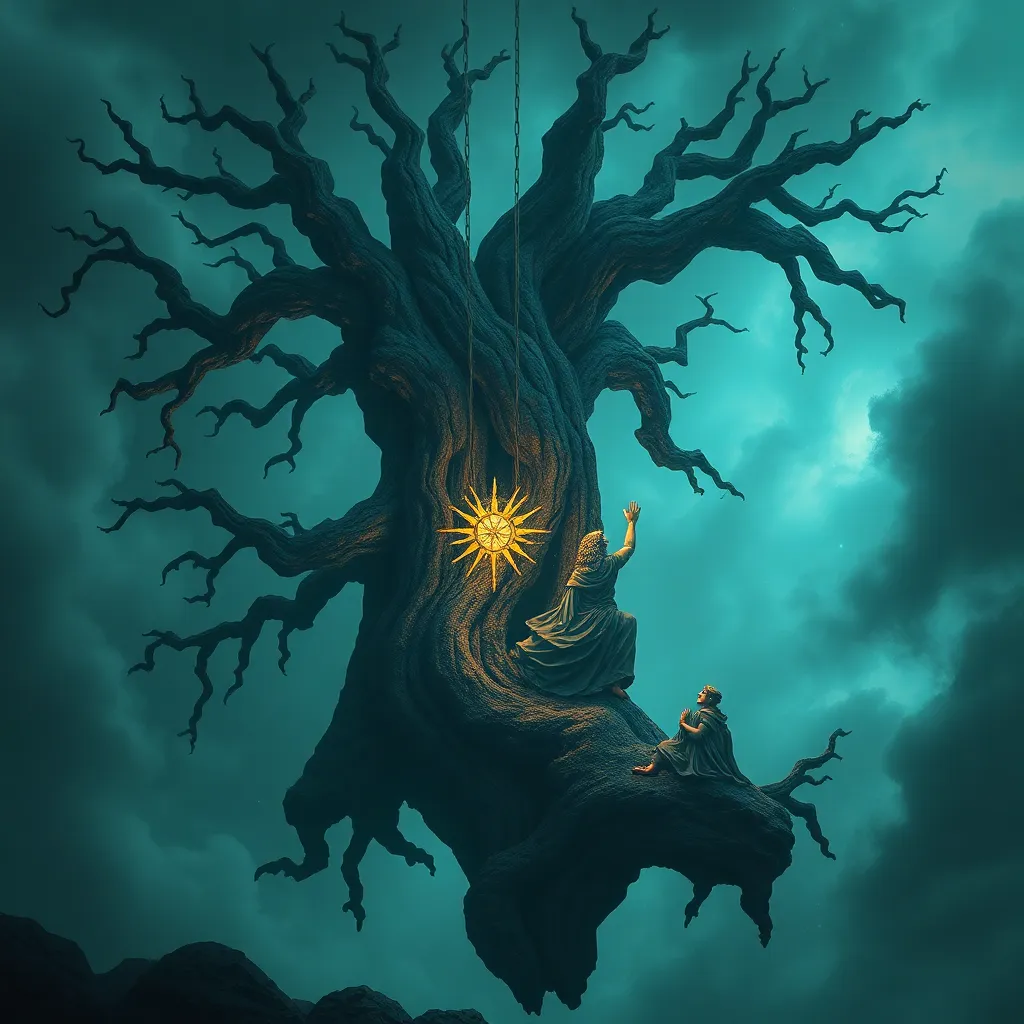Ancient Deities and Their Temptations: Myths of Seduction
I. Introduction
Ancient deities hold a significant place in the mythologies of various cultures, often embodying the values, fears, and aspirations of the societies that worshipped them. These gods and goddesses are not merely figures of worship but also representations of nature, human emotions, and moral dilemmas. Among their numerous attributes, the concept of temptation plays a crucial role in their narratives, revealing deep psychological and cultural implications.
Temptation in mythology often serves as a catalyst for conflict, transformation, or revelation. It highlights the dual nature of desire, where beauty and allure can lead to both creation and destruction. This article explores the myths of seduction among ancient deities, illustrating how these stories reflect not only the complexities of love and desire but also the consequences that follow.
II. The Nature of Temptation in Ancient Myths
Temptation is a recurring theme in mythological narratives, representing the struggle between desire and morality. It often reflects cultural values and psychological battles faced by individuals. The following points outline the nature of temptation in ancient myths:
- Psychological and Cultural Implications: Temptation often embodies the internal conflicts faced by individuals, showcasing the struggle between societal norms and personal desires.
- Common Themes of Seduction: Across different mythologies, themes such as beauty, power, and forbidden love frequently emerge, illustrating the universal nature of seduction.
- The Duality of Temptation: Many myths depict temptation as a double-edged sword, where desires can lead to creativity or chaos, life or death.
III. Greek Mythology: Aphrodite and Eros
Aphrodite, the Greek goddess of love and beauty, epitomizes the allure of seduction. She is often accompanied by Eros, the god of desire, whose arrows can ignite passion in anyone he targets. Together, they symbolize the complexities of romantic and erotic relationships.
One of the most notable myths illustrating seduction is the story of Paris and the golden apple. According to legend, Paris was tasked with choosing the fairest goddess among Hera, Athena, and Aphrodite. Tempted by Aphrodite’s promise of the most beautiful mortal woman, Helen, Paris chose her, leading to the infamous Trojan War.
IV. Roman Mythology: Venus and Mars
In Roman mythology, Venus stands as the counterpart to Aphrodite, embodying love and beauty. Her relationship with Mars, the god of war, is characterized by passionate love intertwined with conflict. Their affair reflects the societal views on love and war, where desire can both unite and divide.
Their union produced several offspring, including Cupid, the embodiment of desire. Venus and Mars’s love story serves as a reminder of the complexities of relationships, where passion can lead to both creation and strife.
V. Egyptian Mythology: Isis and Set
In Egyptian mythology, Isis is revered as the goddess of magic and motherhood, while Set embodies chaos and destruction. The dynamics between Isis and Set reveal the darker aspects of seduction and power.
One notable myth involves Isis’s attempts to seduce Set, using her magical prowess to gain control over him. This seduction is not merely physical; it symbolizes the struggle for dominance and balance within the pantheon of gods. The implications of this myth highlight the consequences of temptation, particularly concerning power dynamics.
VI. Norse Mythology: Freyja and Her Lovers
Freyja, the Norse goddess of love, fertility, and war, is known for her beauty and her numerous romantic entanglements. Her relationships with gods and giants illustrate the complexities of seduction within Norse culture.
Freyja’s tale with the giant Þrymr, who stole Thor’s hammer, reveals her ability to navigate the realms of desire and power. Her seduction of various beings often carries significant cultural weight, highlighting the importance of love and attraction in Norse society.
VII. Hindu Mythology: Krishna and the Gopis
In Hindu mythology, Krishna is celebrated as a divine lover and seducer, renowned for his enchanting interactions with the Gopis, or milkmaids. These stories illustrate the playful yet profound nature of love and desire.
The narratives surrounding Krishna and the Gopis often symbolize the soul’s longing for the divine. Their seductions encompass not only physical attraction but also spiritual enlightenment, emphasizing the transcendental aspect of love.
VIII. Mesopotamian Mythology: Inanna and Dumuzi
Inanna, the Mesopotamian goddess of love, war, and fertility, shares a passionate relationship with Dumuzi, the shepherd god. Their love story is rich with themes of desire, sacrifice, and the cycles of life and death.
The myth of Inanna and Dumuzi explores the consequences of their intense love, illustrating the interplay between joy and sorrow. Inanna’s descent into the underworld and Dumuzi’s subsequent sacrifice reflect the balance between life and death, reinforcing the cyclical nature of existence.
IX. The Consequences of Seduction in Mythological Narratives
Mythological narratives often illustrate the repercussions of temptation and seduction. The stories of ancient deities reveal how desires can lead to profound consequences:
- Destruction and Conflict: Many myths depict how seduction can lead to wars, betrayals, and the downfall of heroes and gods alike.
- Transformation and Growth: On the other hand, some narratives highlight how temptation can lead to personal growth, enlightenment, and the discovery of one’s true self.
- Moral Lessons: The tales serve as cautionary tales, warning against the dangers of unchecked desire and the moral dilemmas that arise from temptation.
In conclusion, the myths of seduction among ancient deities offer a fascinating glimpse into the human experience, exploring the complexities of love, desire, and the consequences that follow. These stories continue to resonate with us today, reminding us of the timeless nature of temptation and its powerful influence on our lives.




